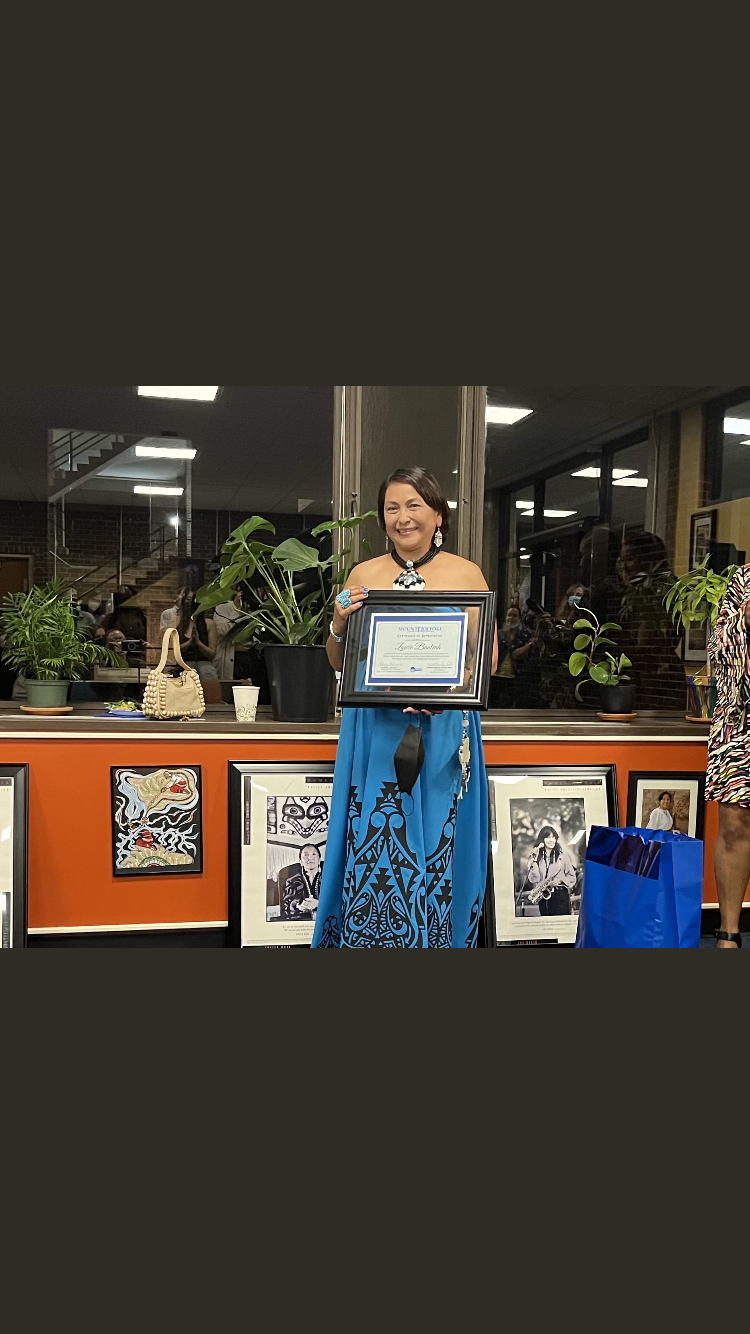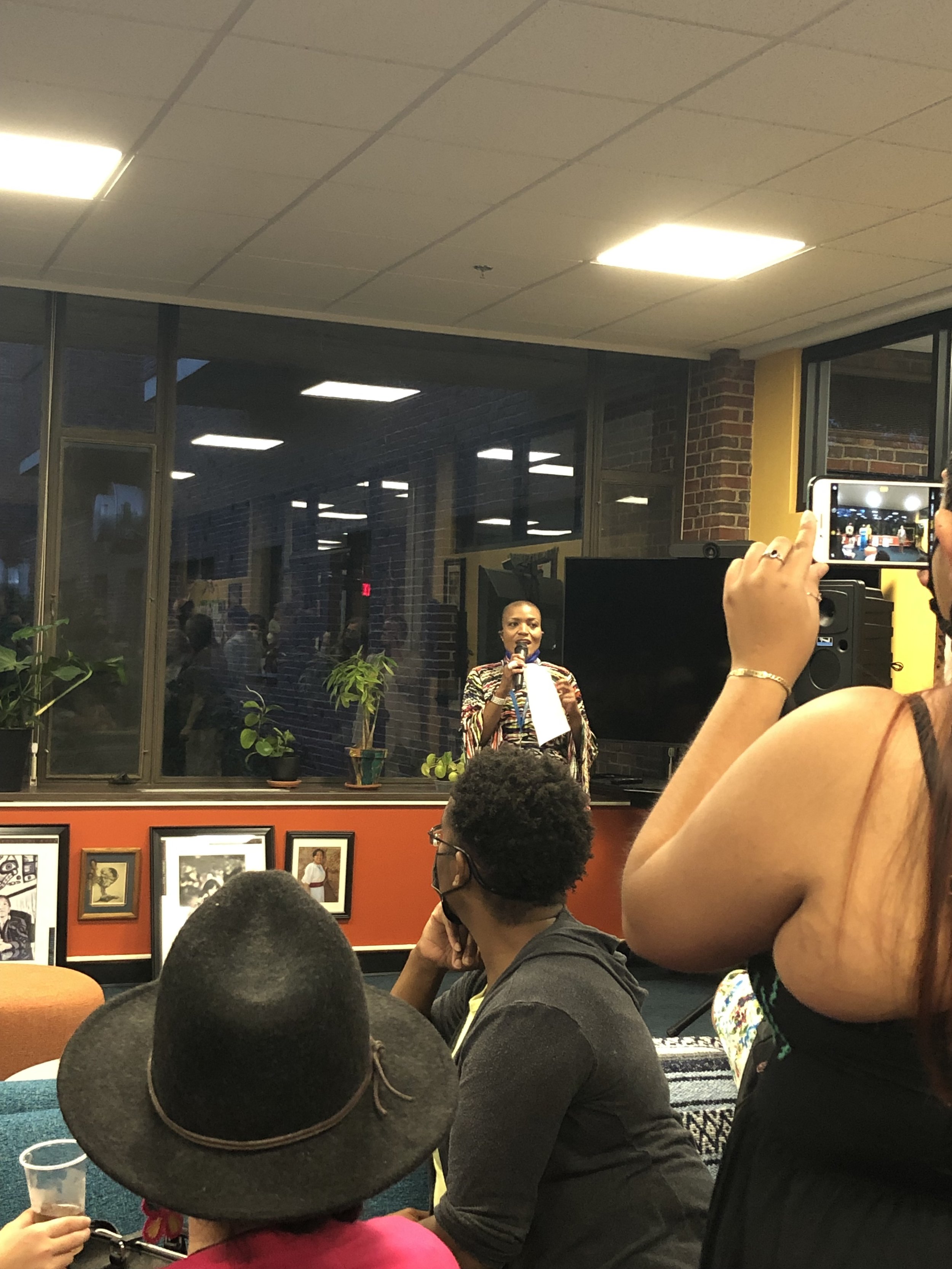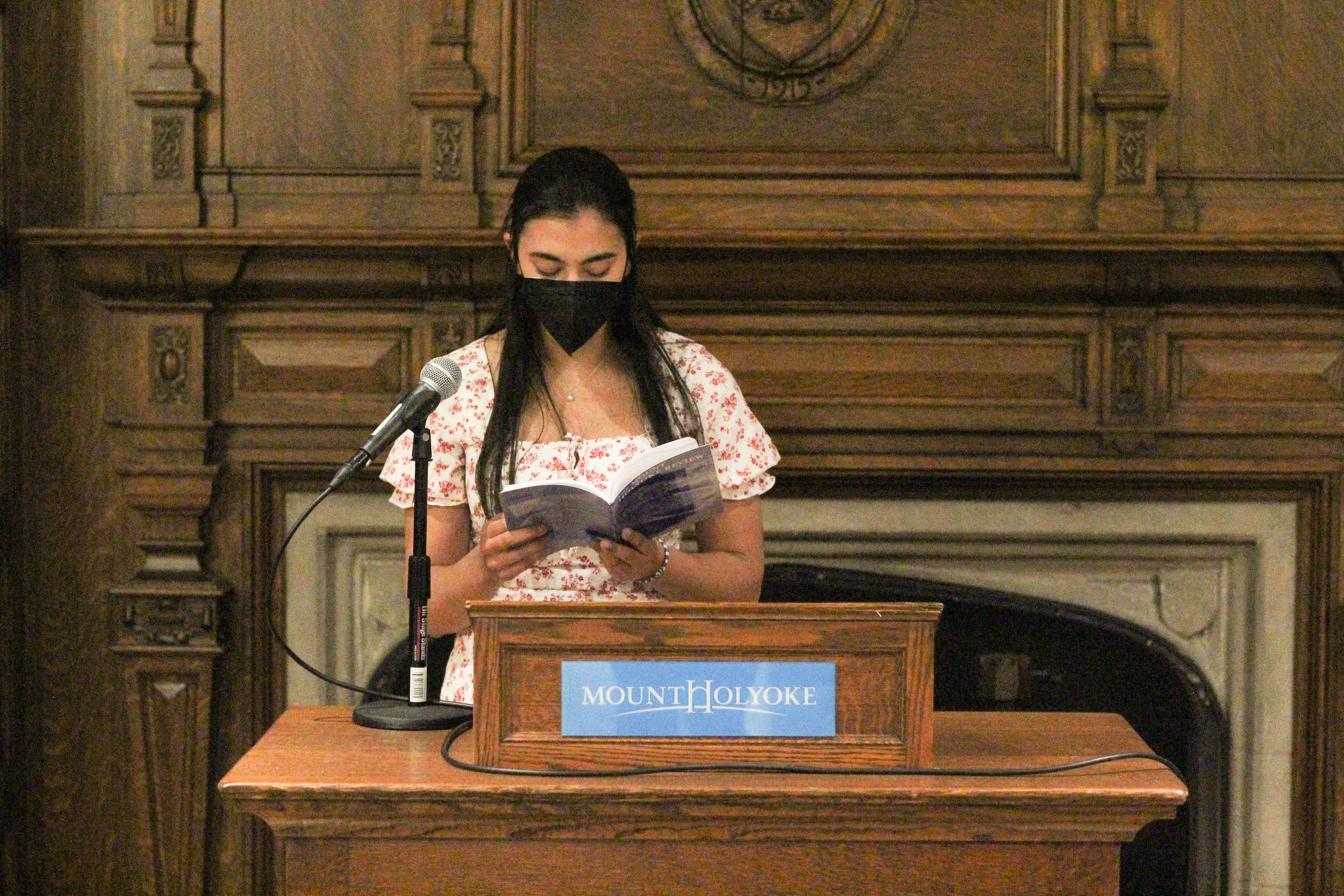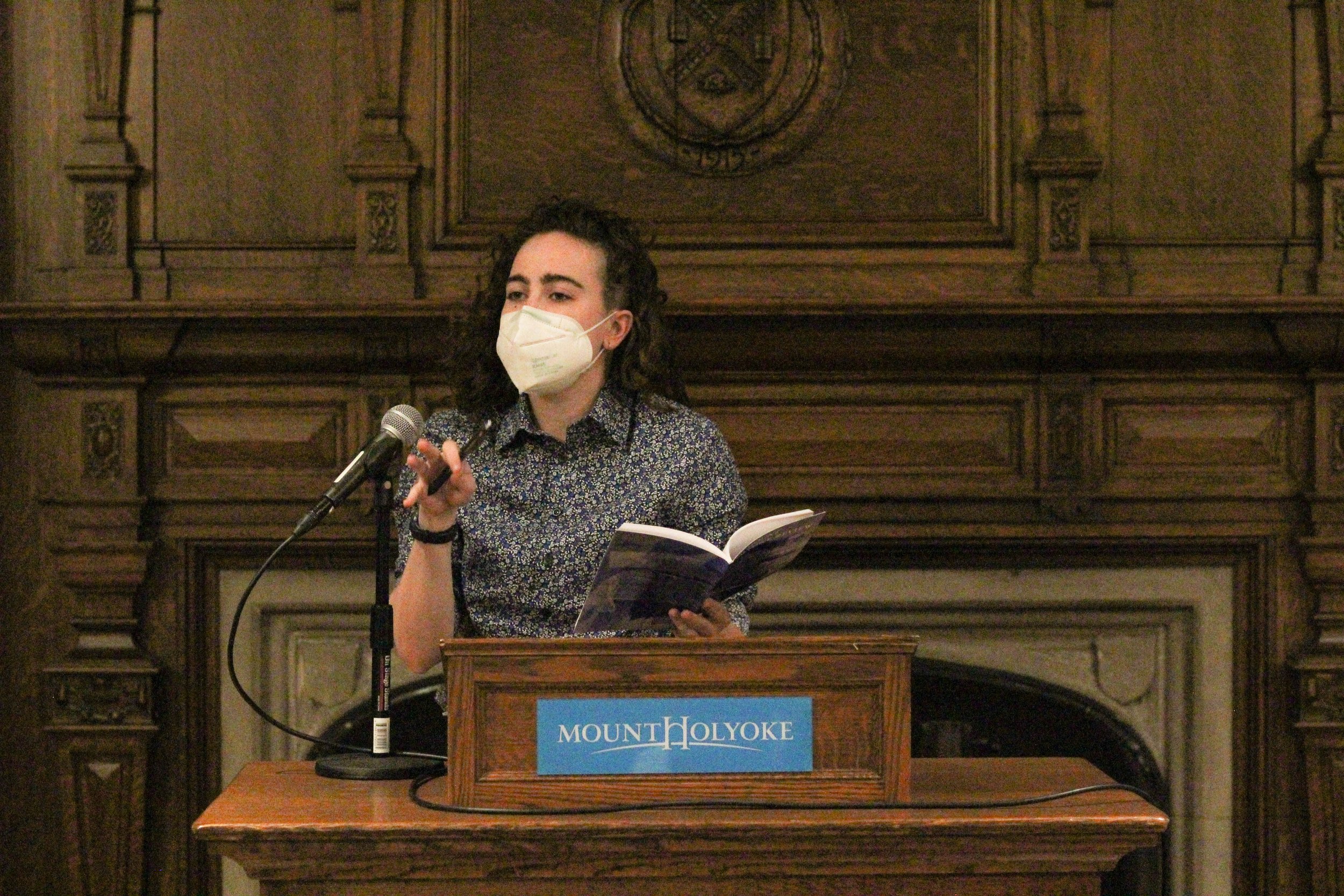Photos by Gillian Petrarca ’23.
Left: Zowie Banteah ’96 and family traveled to the opening of the new Zowie Banteah Cultural Center. Right: Latrina Denson delivers opening remarks and background on the Zowie Banteah Cultural Center.
By Gillian Petrarca ’23
Staff Writer
Content warning: This article mentions anti-Indigenous violence and addiction.
After months of preparation, the Zowie Banteah Cultural Center officially opened in its new space between Ham and MacGregor Halls on Sept. 12 at 6:30 p.m. The event was attended by the center’s namesake — Zowie Banteah ’96 — and her family, as well as students, staff and faculty.
Before entering the new space, attendees gathered outside of Ham Hall by Upper Lake to perform a blessing. Guests gathered around in a circle and were handed tobacco leaves to hold in their left hand, which were smudged with smoke. Larry Spotted Crow Mann of the Nipmuc Tribe performed the blessing.
Before giving the blessing, Spotted Crow Mann shared that he began his storytelling and educational work after battling alcoholism. Spotted Crow Mann attributed the start of his recovery to watching a documentary about how Christopher Columbus brought alcohol and drugs to the Indigenous people. “Every generation suffered surfing our land and the deeds, and on and on it goes. All the health experiences that we suffer today [are] from that poison,” Spotted Crow Mann said. “I spent my entire life … [sharing with] young native people that [they] don’t have to drink or take drugs to have a good life. … I spread that message to all people to see the rapidness that it caused in our communities.”
Spotted Crow Mann said that he takes a holistic approach to dealing with the trauma that Indigenous people may face. “I am so excited about what the youth are doing, what the elders are sharing and how we have access like never before,” Spotted Crow Mann said. “[My tribe] has more land now than we [have] had the last 300 years. When my great grandfather had his land, they took his land. … I am grateful to be here on this land of my people, to touch it and talk to all of you in a place that they weren’t even allowed to come on …”
Spotted Crow Mann then gave a prayer in the Nipmuc language to bless the space.
“I ask that we all celebrate by doing the work that needs to happen in these spaces that are Indigenous. It takes Indigenous people to show you. … I say that because we have the knowledge of this land. … We’re here to guide those allies and accomplish them and help them. So with that, I pray for this space to be a place of learning, sharing, teaching and coming together [for] social justice and collaboration. ,” Spotted Crow Mann prayed.
Spotted Crow Mann thanked Zowie Banteah and her family personally. Banteah then led everyone into the space for the first time.
After being led into the Center, Associate Dean of Students for Community and Belonging Latrina Denson gave opening remarks. Denson remarked that the opening was a moment the community had anticipated and worked toward. Denson acknowledged the ceremony as an opportunity to honor Banteah, faculty, staff, students and members of the community of Native and Indigenous origin. Denson then invited attendees to sign a green book to be placed in the College archives to remember the attendees of the opening.
Denson specially thanked Juliette Gagnon Strong Heart ’24 for her work in helping create the new cultural center, commending Strong Heart for making strides in cultivating an open campus culture and inviting students to express themselves freely.
Denson went on to give a background of the Zowie Banteah space, which was opened in 1995 under its original name, Native Spirit. The Center was renamed in 1997 after alumna Zowie Banteah, who was instrumental in its founding. Denson then introduced Kijua Sanders-McMurtry, vice president for equity and inclusion.
In their speech, Sanders-McMurtry spoke directly to the contributions that Banteah has made to the space and to the broader campus community. Specifically, Sanders-McCurty acknowledged the work that has been done since Banteah’s time as a student on campus. Before taking a moment to thank the individuals that cleaned the space, cooked the food and shopped for the decorations, Sanders-McMurtry thanked Banteah’s family for traveling to the event from New Mexico.
Sanders-McMurtry closed the night by urging audience members not to simply identify themselves as “anti-racists,” but to address past wrongs and to work towards a more equitable future. On a hopeful note, the vice president for equity and inclusion addressed the audience as being collectively joined on a path towards anti-racism.
“I’m really excited about what can happen with all of you here today by doing that intentional work,” Crow Mann remarked.
Guests then enjoyed Indigenous food from Sly Fox Den Restaurant & Bar. After eating, guests viewed a song and dance by pow wow drum group Urban Thunder.








